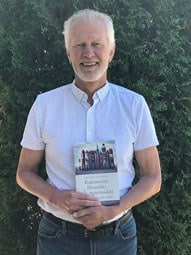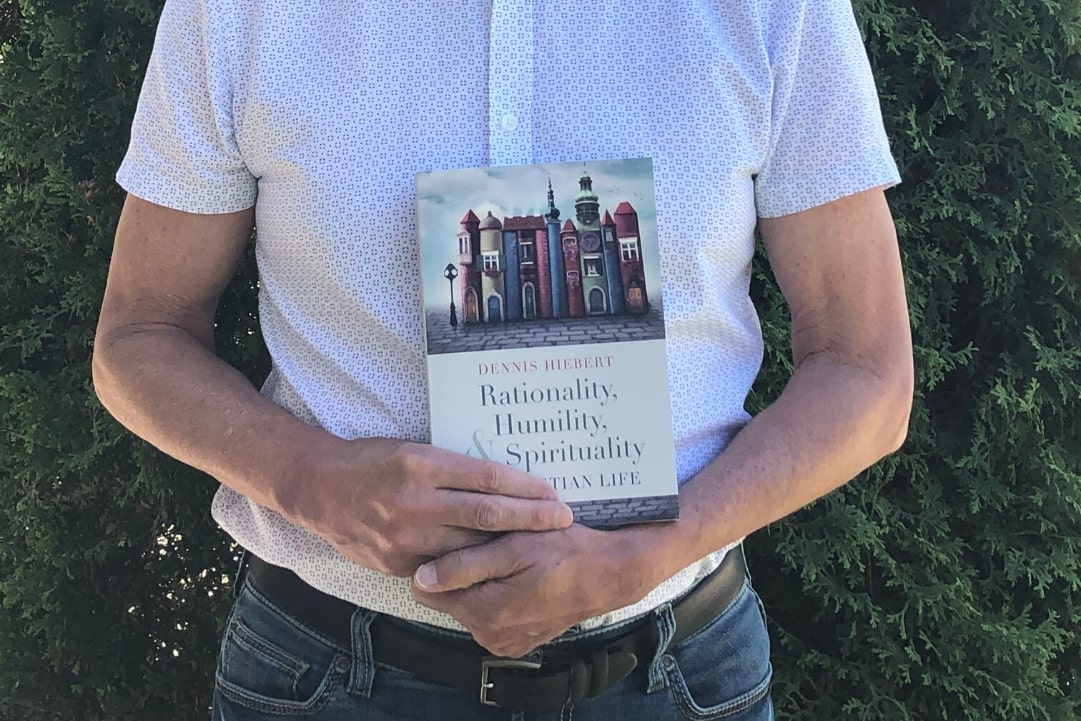Earlier this spring, Dr. Dennis Hiebert, long-time Professor of Sociology at Providence, published with Cascade Books his second book entitled Rationality, Humility, and Spirituality in Christian Life. This 222-page book features three interconnected essays on how to express and live out our faith when confronted and humbled by our human limitations.
Hiebert has been a Jesus-follower all of his life and began his career at Providence as an Athletic Director. He only came to formal, academic sociology in mid-life, getting his Master’s degree and Ph.D. in Sociology at the University of Manitoba.
In the introduction of his book, he shares, “I write as both a Christian and a sociologist, someone who practices both personal Christian faith and professional social scientific scholarship.”
Recently, Hiebert took time to answer a few questions about his latest book as follows:
Q: Why did you write this book? 
A: I did not set out to write this book in the final form it took. I first published an academic journal article critiquing excessive rationality in Christian life, and after I published a second academic journal article calling for intellectual humility in Christian life, I realized the connection, and the subsequent need then to explore spirituality in Christian life, which had long fascinated me. So the book is three extended and interconnected essays, each an expansion of a journal article.
Q: What audience did you have in mind when you wrote the book?
A: The book is primarily a work of scholarship, intended for students at the upper undergraduate and graduate level of university education. But it is not confined to one academic discipline. It is thoroughly interdisciplinary in an attempt to demonstrate how multiple disciplinary perspectives are necessary to elucidate well these complex topics. Though I am a sociologist, there are repeated, substantial sections drawn from psychology, philosophy, history, cultural studies, religious studies, and even biblical studies.
Q: What is the key theme and/or message in the book? 
A: When we exhaust our rationality and are confronted with its limitations, we are humbled by our finitude, and animated by our spirituality.
Q: What do you hope your readers take away from this book?
A: I hope readers will be able to comprehend the excessive rationality that modernity has built into both the cognitive structure (how we think) and organizational structure (how we live) of contemporary Christian life. I hope they will then hear the call to live out an authentic attitude of humility, and in particular, the virtue of intellectual humility that is most challenged and tested by religious convictions. Finally, I hope readers will feel permission and an invitation to live their faith more as an internally differentiated and open spirituality, rather than an externally determined and regulated religiosity.
Q: What was one of the most surprising things you learned in creating your book?
A: Other than learning about how much research has been done by positive psychologist on intellectual humility, I don’t think anything really surprised me. But perhaps what impressed me the most was how the respective disciplinary perspectives reinforced each other at every turn. There was minimal intra- or inter-disciplinary disagreement and debate about the topics and issues. Instead, there was surprising consensus that, at least for me, made my conclusions more compelling than I expected.
Q: Where can people buy your book?
A: It is available from all major national booksellers such as Amazon, Barnes & Noble, Google Books, Goodreads, etc., as well as Wipf and Stock Publishers.
Hiebert’s writing has been described as having a deep pastoral undertone and a touch of artistic story-telling. It is both academic and inspiring. His book is a call to Christians to think critically about the structure, attitude and experience of their personal and collective faith in light of today’s challenges of secularization and post-Christianity. It will help believers to understand how culture has shaped their faith.
For further reading, CLICK HERE to view The Carillon’s article on Hiebert’s book entitled Sociologist’s Book Questions Rationalism’s Reign Over Faith. You can also READ HERE the article published in the Mennotoba.


